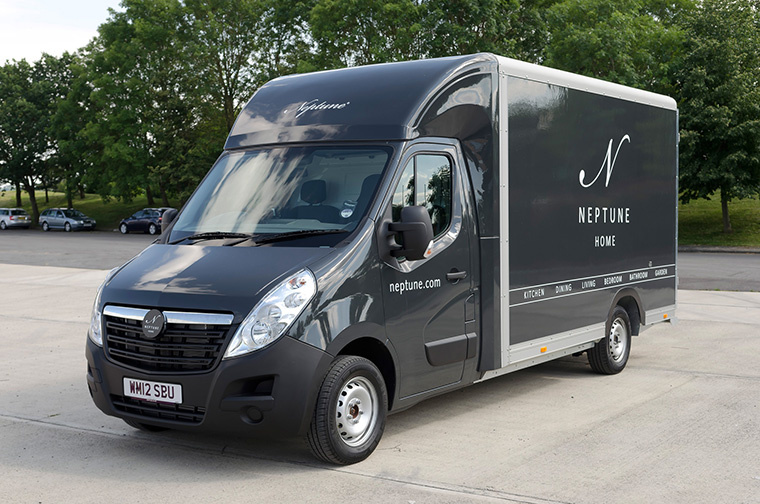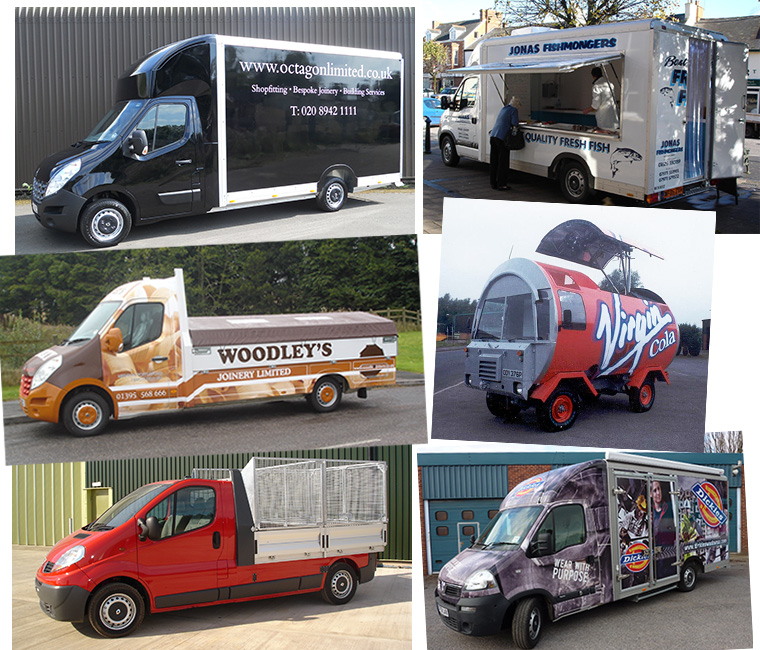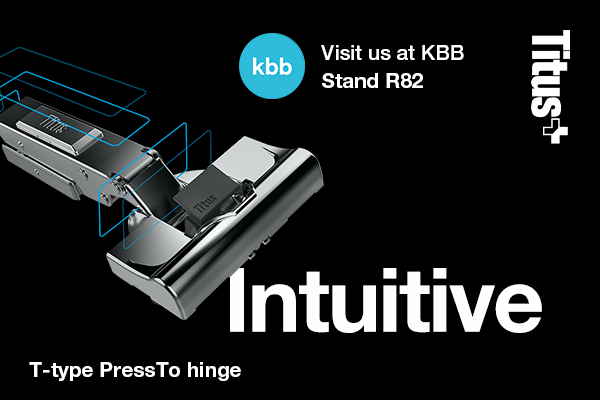Images: © Matt Austin
The successful Devon-based vehicle body builder has recently moved from its Cullompton home to impressive upgraded facilities located a few miles north-east in Uffculme to improve its output and efficiency. John Legg toured the new premises and caught up with the Trucksmith team to see how the transition was progressing.
Managing logistics is a crucial part of a business plan. Badly loaded, often overweight vans are difficult to handle and cause a plethora of avoidable issues which cost so much in the longer run. The professional way forward is to utilise the best solution to enable staff to perform efficiently and for customers to benefit from speedier and safer service.
Trucksmith provides the optimum among converted vans – and its reputation and demand for its products and services is growing.
So what are the differences between a standard van from Renault or Vauxhall, and a Trucksmith option? A Trucksmith LoLoader differs from the average van because it has developed and fine-tuned a class-leading, low-floored Luton conversion. The Trucksmith LoLoader is the market leader because it is built to an exceptional standard and offers a range of benefits.
Among a host of performance improvements over standard vehicles, Trucksmith’s LoLoader coversions are built to meet a client’s exact needs, be the customer a flower or furniture dealer, specific requirements require different solutions to make it as easy, convenient and efficient as possible.

Trucksmith's vehicles are ideally suited to the furniture industry
Some of the LoLoader benefits include: the lowest load height in its sector of just 550mm, or 450mm with air suspension engaged; a slip-resistant plywood floor; 270° opening rear doors for easy access; directional interior work lamp; and no ‘O’ licence required.
Additionally, regarding European Whole Vehicle Type Approval, Trucksmith is a fully VCA-registered firm. The company’s facilities are also of the highest standard, indeed its conversion centre meets Renault’s highest legal and technical requirements which therefore delivers Renault-approved quality.
The warranty that the company offers mirrors that of the manufacturer and the warranty inspections and assessment are carried out regionally, not recovered to base as some firms will require.
Simon Partridge, executive sales and brand manager, Trucksmith, says: “The efficiency of our vehicles is matched by their versatility. We can create specialist vehicles such as food retail or ice cream vans, a mobile library or even a showroom. We are able to undertake these conversions and any other specialist requirements within our own production facility. We find the 3.5 tonne configuration popular because drivers do not need to obtain a specialist operating licence.”
Dan Trebble, managing director, Trucksmith: “We understand that payload is a crucial issue, in the furniture sector in particular. They require volume but dealing with heavy individual items can upset the sensitive balance,” he says.
“Through our innovative manufacturing methods, our low-loading fleet can achieve a payload of 1300kg, with the driver, fuel, spare wheel and toolkit taken into account. Fuel consumption averages at 30mpg fully laden, but can be significantly more on a run.”

Just a snapshot of the variety of conversions carried out by Trucksmith over the years.
Trucksmith Q&A
Since the 1980s, Trucksmith has been adapting Luton-type vehicles to maximise capacity – how do today’s vehicles differ from those made 30-odd years ago?
“Traditionally, you would build a Luton type body onto what’s known as a chassis cab which had two steel chassis legs to build from and fix a body on top of. Using the front wheel drive platform cab, you have the ability to achieve the low loading height of just 550mm but also much higher payloads.
“The two structures – the base vehicle and our body – complement and combine to each other forming a monocoque construction, reducing the need for chassis legs and so forth which all add weight and reduce payload.”
Having recently moved from Cullompton to more expansive and integrated premises at Uffculme, how has the business changed and what are the ramifications?
“All departments have benefited from the move allowing and facilitating continued sustainable growth. Trucksmith has increased efficiency and capacity by installing a dedicated vehicle manufacturing production line which has reduced lead times. This in turn has produced more orders, bringing in more revenue to reinvest and continue the great progress we have been making in our first 30 years of business success.
“Research and development has been one of our key strokes of genius. It allows us to continue using and combining well-managed quality control plans with continued improvement.
“We are now manufacturing and building the body in a quicker, more effective way, using the latest hi-tech equipment and materials, making us market-leading in terms of quality and payload. More importantly for the end user, we are able to offer all of this and still build cheaper than when we originally designed this style of body 23 years ago.”
What are the most important issues a furniture business needs to consider when looking at these types of vehicles for the their businesses?
“The manufacturers are building base vehicles heavier, year after year, model after model, which in turn makes our job harder as the furniture industry wants to carry more and more load – the pressure to increase payload is a constant challenge.
“More and more vehicles are being pulled over by the roadside to be weighed, with operators who are overloaded being fined. Our continued improvement processes coupled with our research and development programmes – second to none in the industry – are constantly finding new ways to save a kg here and a kg there. This ultimately makes a considerable difference to a furniture business where the load is rarely lightweight.
“This continuous process allows us to constantly improve payload. For example, with the introduction of the new EuroVI engines with Adblue, the base vehicle has increased in weight by 45kg.
“Over the last two years, we have managed to reduce our body weight – from offering payloads of 1234kg when the new models were launched, we are now able to offer over 1300kg of payload including the allowance for driver, fuel, spare wheel and tools.”
What are Trucksmith’s plans for the future?
“Our plans are to continue with the good work that was started by the company founders 30 years ago, with the same values and priorities that laid such strong foundations. We will continue to invest in research and development which will ensure we stay market leaders now and in the future.
“As a business we are investing in more branded products into different industries other than furniture, but they will still have the Trucksmith build quality, style and support that we offer, whenever we put our name on a vehicle.”
01884 841055
trucksmith.co.uk









